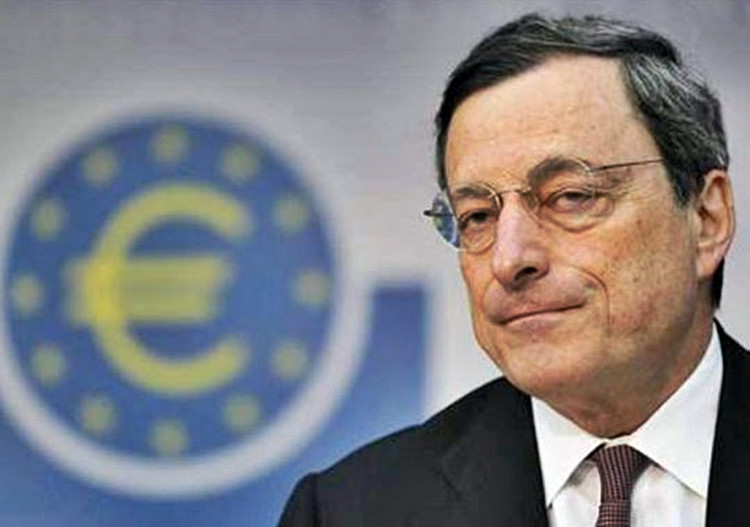It's now beyond doubt Europe's feverish economies are sicker than they seem. The European Central Bank (ECB) yesterday slashed its 2019 GDP forecast for the eurozone or euro area to 1.1 percent from 1.7 percent, sending rates down across the board, and pummeling equity markets worldwide.
The dire news caused nervous investors to flee stock markets for the relative safety of debt. U.S. investors piled into sovereign debt while in Europe, the yield on the 10-year German bund fell by half from 13 basis points to about 6.5 basis points.
Rates on Italian debt plummeted as much as 19 basis points. The yield on the 10-year U.S. Treasury fell 4 basis points.
U.S. stocks, which are in the midst of a mile recovery, took a beating following the deflating news from the ECB. Both the S&P 500 and the Dow Jones Industrial Average fell more than 1 percent, putting American stocks on track for their worst week of the year.
The ECB followed-up its dismaying economic news by announcing a new round of stimulus. It also delayed its timeline for future rate hikes "at least through the end of 2019."
When it slashed its growth projection this year from 1.7 percent to 1.1 percent, the ECB said it would offer cheap loans to European banks to stimulate sluggish economies. These cheap loans mean banks will be able to borrow and lend more money starting September, effectively stimulating European economies with more cash.
ECB also lowered its inflation projection to 1.2 percent, well below its target rate of just below 2 percent.
ECB President Mario Draghi was brutal in his frankness, saying that "the weakening in economic data points to a sizable moderation in the pace of the economic expansion that will extend into the current year."
"We now expect (interest rates) to remain at their present levels at least until the end of 2019, and in any case for as long as necessary," said Draghi.
But in saying there will be no rate hikes for the next nine months, ECB's message was clear: there's no expectation European growth will improve even moderately
"The outlook for real GDP growth has been revised down substantially in 2019 and likely in 2020," said Draghi.
He also noted the "persistence of uncertainties related to geopolitical factors, the threat of protectionism and vulnerabilities in emerging markets appears to be leaving marks on economic sentiment."
The euro fell again after Draghi's remarks.





